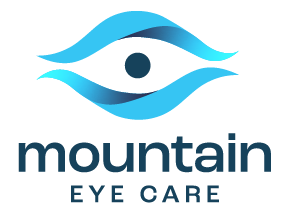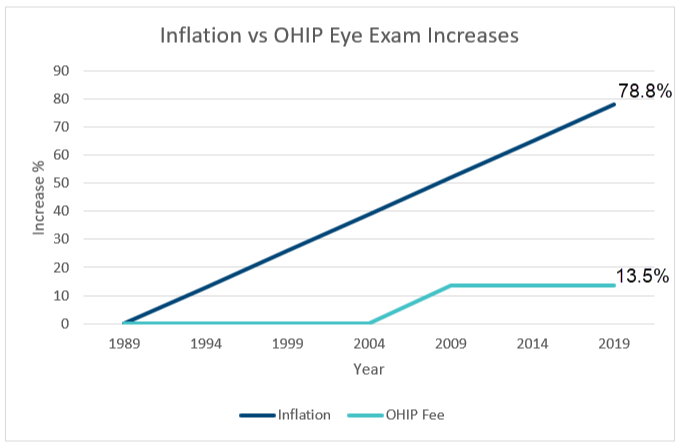What Causes Dry Eye?
Introduction Dry Eye is a widespread condition affecting millions globally, marked by inadequate tear production or poor-quality tears. This results in symptoms like irritation, redness, and blurred vision, which can significantly impact daily life and productivity. If you live in Hamilton, Ontario, Mountain Eye Care can help diagnose and treat dry eye.
Causes of Dry Eye
- Environmental Factors
- Climate and Pollution: Exposure to windy, dry, or polluted environments can worsen dry eye symptoms. Air conditioning and heating systems can also contribute by reducing humidity.
- Screen Time: Extensive use of digital screens decreases blink rates, reducing tear production and increasing tear evaporation.
- Age and Gender
- Aging: Tear production naturally diminishes with age, affecting those over 50 more frequently.
- Hormonal Changes: Hormonal changes, especially during menopause, make women more susceptible to dry eye as they can affect tear production.
- Medical Conditions
- Autoimmune Diseases: Conditions such as Sjogren’s syndrome, rheumatoid arthritis, and lupus can lead to dry eye as they target glands responsible for tear production.
- Diabetes and Thyroid Disorders: These conditions can alter tear film quality and quantity.
- Medications
- Antihistamines and Decongestants: These can reduce tear production.
- Blood Pressure Medications: Beta-blockers and diuretics can contribute to dry eye.
- Ocular Surface Diseases
- Blepharitis: Inflammation of the eyelids can hinder the normal functioning of glands that produce the oily layer of tears.
- Conjunctivitis: Inflammation or infection of the conjunctiva can disrupt the tear film.
- Contact Lenses
- Prolonged use of contact lenses, especially in dry environments, can exacerbate dry eye symptoms.
Solutions for Dry Eye
- Lifestyle Changes
- Reduce Screen Time: Adhering to the 20-20-20 rule—focusing on something 20 feet away for 20 seconds every 20 minutes—can effectively reduce eye strain.
- Environmental Modifications: Utilizing humidifiers, avoiding direct exposure to air conditioning or heating, and wearing protective eyewear outside can be beneficial.
- Artificial Tears and Lubricants
- Over-the-counter artificial tears can offer quick relief by supplementing natural tear film.
- For more severe cases, preservative-free drops or gels provide longer-lasting lubrication.
- Medications
- Anti-Inflammatory Drops: Cyclosporine or lifitegrast can help reduce inflammation and enhance tear production.
- Punctal Plugs: Small devices placed in the tear ducts help retain tears on the eye surface by blocking drainage.
- Diet and Supplements
- Omega-3 fatty acids: From fish oil, it has anti-inflammatory benefits that can enhance the quality of the tear film.
- Hydration and Balanced Diet: Staying hydrated and eating foods rich in antioxidants can promote eye health.
- Advanced Therapies
- Thermal Pulsation Therapy: For Meibomian gland dysfunction, this therapy uses heat and massage to clear blockages.
- Intense Pulsed Light Therapy: This treatment can reduce inflammation and improve the function of oil glands.
- Specialized Eyewear
- Moisture chamber glasses can help retain moisture and shield eyes from wind and irritants.
- Surgical Interventions
- In severe cases, surgery to partially or fully close the tear ducts (tarsorrhaphy) can help retain more tears.
Mountain Eye Care in Hamilton, Ontario Mountain Eye Care is equipped with the expertise and technology to diagnose and treat dry eye. They offer comprehensive eye exams to detect early signs and determine the underlying causes of dry eye. The team will then tailor treatment plans that may include advanced therapies, medications, or lifestyle advice to provide long-lasting relief.
Preventive Measures
- Routine check-ups at Mountain Eye Care can help detect early signs of dry eye and associated conditions.
- Eye Hygiene
- Regular lid hygiene and warm compresses can keep oil glands functioning.
- Limit Contact Lens Wear
- Opt for glasses or ensure contact lenses are used according to prescribed guidelines to minimize dryness.
- Healthy Lifestyle
- Maintaining a healthy diet, avoiding smoking, and staying hydrated can positively affect tear production and quality.
Dry eye is a multifaceted condition requiring a comprehensive approach for effective management.
Recognizing the causes of dry eye is essential for identifying the right solutions, which can range from straightforward lifestyle adjustments to advanced medical therapies. Mountain Eye Care, located in Hamilton, Ontario, provides a variety of tailored treatments designed to relieve dry eye symptoms.



